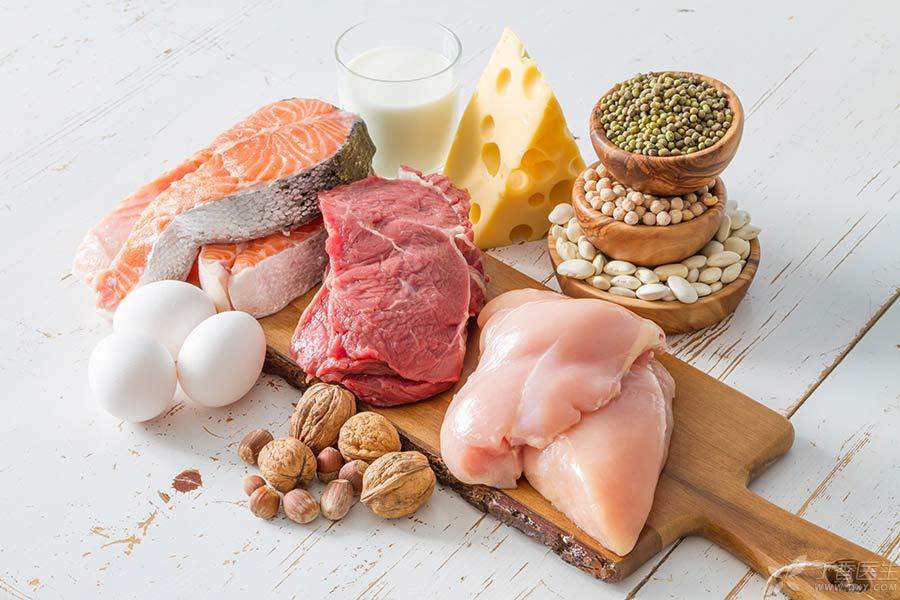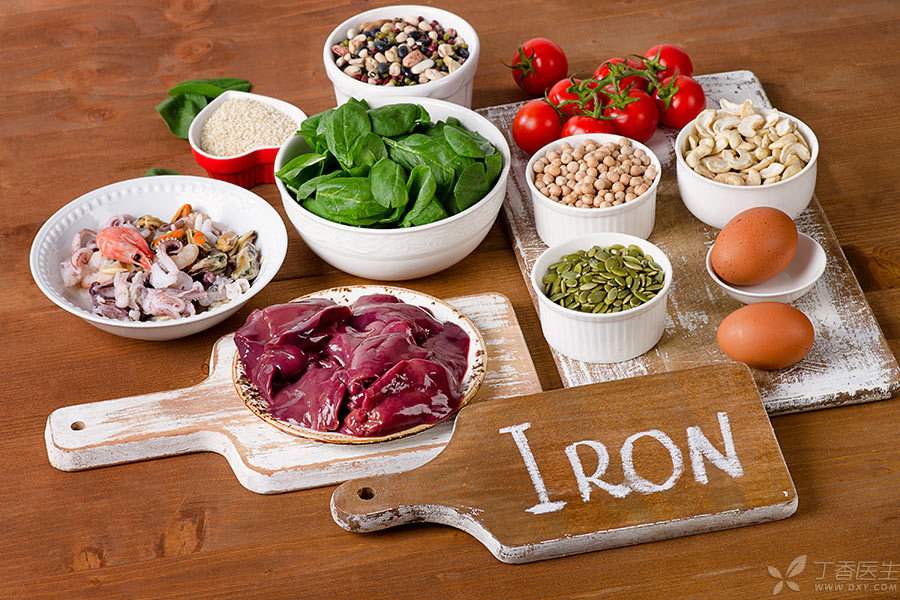
The baby’s immunity is a matter of great concern to parents. Moreover, [food is heaven] is also a Chinese characteristic. Many parents always come to ask Dr. Clove that eating what can improve immunity.
Although Dr. Clove also wants to tell everyone about such magical food, Dr. Clove, who touches his conscience, wants to say that improving the baby’s immunity is a systematic project and cannot be improved tomorrow after eating what today.
Nutritionist Li Liangli told Dr. Clove that paying attention to the following three points is helpful for the maturity of the baby’s immune system.
Adhere to breastfeeding
Breast milk contains a variety of precious and rich nutrients and immune substances, such as lactoferrin, which inhibits the growth of bacteria in intestinal tract, and macrophages that can phagocyte and kill pathogens.
The most practical way to improve the baby’s immunity is to insist on breast feeding.
Yellow colostrum is especially rich in antibodies, which can provide natural protection for newborns with immature immune system.
It is best for the baby to be exclusively breast-fed for at least 6 months. If conditions permit, breast-feeding can continue until the baby is 2 years old.

Provide sufficient nutrients related to immune function
There are some nutrients closely related to immune function, such as protein, vitamin A, vitamin C, zinc, iron, etc.
After reaching the age of 6 months, the baby should add supplementary foods in time to ensure the intake of milk, meat, eggs, grain, fruits and vegetables every day, to ensure various nutrients needed for the child’s growth and development, and to promote the maturity of the immune system.
At the same time, Dr. Clove also introduced some related recipes to facilitate parents to apply them to their babies’ supplementary foods.
1. Protein
Protein is the material basis of the body’s immune function. If intake is insufficient, it will affect tissue repair, reduce the local immunity of skin and mucosa, easily cause the reproduction and diffusion of pathogenic bacteria, and reduce the anti-infection ability.
After the baby adds supplementary foods, it needs to ensure a certain amount of animal meat, eggs and beans every day, such as one egg and about 50 g of meat every day.

Stewed egg with minced meat
Raw materials: minced pork, eggs
Step:
1. Mix 50g of minced pork with 1 egg, add 200ml of clear water and beat well.
2. After the steamer is boiled, add minced meat and egg liquid. Steam over medium heat for 10 minutes, or turn in microwave oven for 5 minutes.
2. Vitamin A
Vitamin A can regulate the immune function of the body.
When vitamin A is lacking, the human body’s susceptibility to bacteria, viruses and parasites infection increases, while respiratory tract or digestive tract infection can aggravate vitamin A deficiency.
Common foods rich in vitamin A include animal liver, whole milk products and eggs. Carotene in yellow-green vegetables can also be converted into vitamin A in human body, such as carrot, spinach, grass head, pea seedlings, pumpkin, etc.

Carrot, pork liver, millet and flour
Raw materials: millet, flour, pork liver, carrot
Step:
1. Soak pork liver in bleeding water for 20 minutes, change water two or three times during the period, then rinse it clean, cook it with a slice of ginger, take it out and crush it;
2. Wash, peel, cook and chop carrots for later use;
3. After boiling millet for 5 minutes, filter out the water (be careful not to boil it too badly), sieve out millet, leave rice soup and boil granules and flour;
4. Put flour into the bowl, pour the cooked millet into the flour and stir, and constantly turn the plate to ensure that each millet is stained with flour;
5. Pour the rice soup just left into the pan, boil it, add granular flour, and boil it over low heat for 5 minutes.
6. Pour pork liver and carrot pieces into the pot and boil them for a while before they can be taken out of the pot.
3. Vitamin C
Lack of vitamin C can lead to the decline of body resistance and incomplete bone calcification.
Common foods rich in vitamin C include fresh fruits and vegetables, which requires parents to add these foods to the baby’s supplementary foods.
Here, Dr. Clove should also emphasize two words: fresh to avoid vitamin C loss. In addition, most fruits have high sugar content, so priority should be given to ensuring vegetable intake and cannot replace vegetables with fruits.

Colored pepper egg cup
Ingredients: 1 color pepper, 1 egg
Step:
1. Cut a quarter of the sweet pepper, remove gluten and seeds;
2. Knock an egg, beat it evenly and add appropriate water;
3. Sieve that egg liquid, filtering bubble and excess impurities, and pouring colored pepper;
4. Put it into the steamer for about 15 minutes (put it into the steamer after the pan is boiled, and the time depends on the pan in your home);
5. You can eat it when you come out of the pot ~
If there is an oven at home, you can also wrap the lower body of the colored pepper with tin foil and put it into the oven for 15-20 minutes at 180 degrees. The baked colored pepper is still a little crisp, and the eggs are tender and smooth, so you should be careful to burn it! Babies after one year old can add some cheese properly, and it is delicious to melt together after baking.
4. Iron
Iron is closely related to immunity, which can improve the immunity of the body, increase the phagocytosis of neutrophils and macrophages, and enhance the anti-infection ability of the body.
After the baby is born, the iron reserve can be maintained for 4-6 months, and then it needs to be obtained from supplementary foods in time. Iron fortified rice flour and red meat are the best sources of iron for infants.
In addition, animal liver and blood products are also foods rich in iron, which can be taken in an appropriate amount on the premise of ensuring hygiene. When eating iron-rich foods, you can eat fruits and vegetables rich in vitamin C to increase the absorption rate of plant iron.

Spinach and pork liver porridge
Ingredients: spinach, pork liver
Step:
1. Wash pork liver and cut it into pieces, soak it in water for a moment;
2. Add ginger slices to remove fishy smell, and cook in an auxiliary food machine or a steamer for about 15 minutes.
3. Soak spinach in water and wash it, then blanch it in a pan with water;
4. Spinach and pork liver are cut into mud respectively and put into cooked porridge to eat.
5. Zinc
Zinc plays an important role in the development of the immune system and the maintenance of normal immune function. Shellfish, red meat, animal viscera, etc. are good sources of zinc and have a high utilization rate. To ensure the intake of red meat in the baby’s supplementary food menu, there is no need to worry about zinc deficiency by [trace element examination].

Fresh shrimp and bean curd soup with scallops
Raw materials: shrimps, scallops, lactone tofu, soft rice
Step:
1. Wash shrimps and cut them into small cubes;
2. Soak dried scallops and tear them up, stir tender tofu into mud, and beat eggs for later use;
3. Put oil into the pan, stir-fry shrimps and scallops in the pan, then add tofu and stir-fry;
4. Add water to stew, add egg liquid after the water is boiled, and it is good.
It can be eaten with soft rice or noodles and tastes delicious.
Eat well and eat well
To enhance the baby’s immunity, in addition to breast milk and the nutrients mentioned above, other nutrients are equally important. There are complex interactions between nutrients. In order to supplement and specially eat more, it is better to cultivate the baby’s good habit of not being picky about food and not being partial to food.
In order not to be picky about food or partial to food, the simplest thing is to ensure as many kinds of food as possible every time you eat for your baby.
Every meal is guaranteed to have fresh vegetables, animal food and staple food, and it is not as heavy as possible: if you eat pork at noon today, you can eat chicken at night, fish at noon tomorrow and beef tomorrow night.
In order to make your baby more interested in each meal, besides cooking carefully, you should also pay attention to the matching of ingredients. For example, beef, broccoli and millet are included in a meal at the same time, and the matching of red, green and yellow colors will make your baby more interested in them.
It is very difficult for the baby to eat a balanced diet and have a good meal alone. It takes parents to pay more attention to develop a baby who is not picky about food and is not partial to food and has strong immunity.
